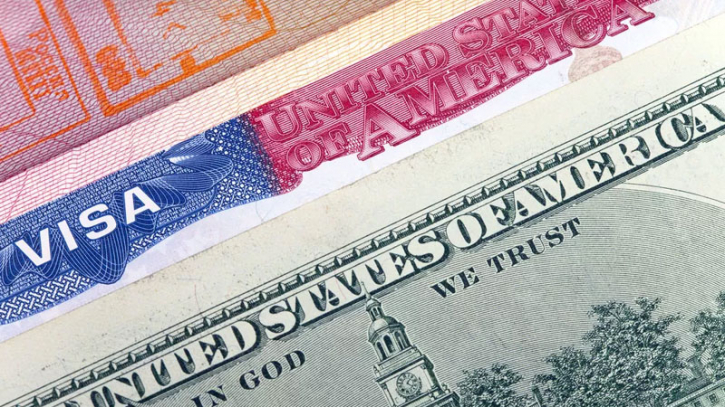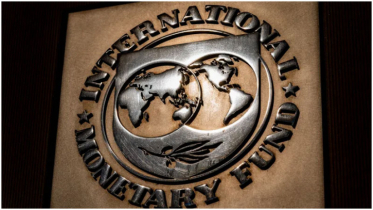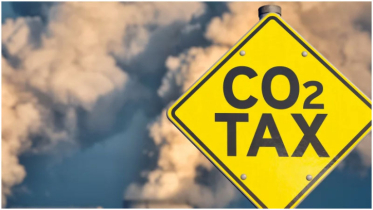What's the good of restricting US visa for Bangladesh?

US visa restriction policies for Bangladesh and their execution are fuelling widespread rumours in Bangladesh on the eve of the 12th parliamentary election. The rumour-mongers are spreading rumours and the doom merchants are issuing apocalyptic warnings of the end of everything induced by US visa restrictions. They are overdoing things and circulating malicious rumours centering are cent remark made by the US Ambassador Peter Haas in an exclusive interview on Channel 24 conducted on September 24, 2023,which stated that media in Bangladesh might also come under the purview of US visa restrictions.
The atmosphere is getting tense and the public hunch is that if the elections are not held fairly and squarely in the US eye, the persons allegedly responsible for obstructing the electoral process would be brought under this visa policy. According to a press statement issued on September 22, 2023 by Matthew Miller, the spokesperson for the U.S. Department of State, current or former officials/employees, supporters of the government and members of the opposition can be implicated in the US visa restriction bid.
This, however, does not mean that the US has already released the list of the people affected by the visa restriction policy. But the strangest thing is that some vested interests are busy spreading rumors around this visa policy. One after another, fictitious lists are being published to defame certain eminent persons and senior government officials and to provoke the general public. However, no such list has been released from the United States yet. The truth of the matter can be found only if you visit the US Embassy website. So, the motive for the list of the false and fictitious names published by the mischief makers on social media is clear. The United States never publishes a list of visa restricted persons, it is kept as a classified document. So why did the miscreants publish this list? In fact, the ulterior motive of misinformation is to mislead people. So, it is our duty as conscious citizens to identify these miscreants as soon as possible and bring them to justice without being misled by rumours. Maybe this is sort of a pre-election political game played by the troublemakers with a view to fishing for public support in their favour. And hence, the situation should come under close scrutiny as to whether we are really on the brink of apocalypse induced by US sanctions and visa restrictions or they are merely scaremongering.
The US is much given to doing this whenever it comes to noncompliance with their geopolitical interest. If they think their interest is turned down by any governments, they can go to any extent to oust them from power. John Bolton, the former US ambassador to the United Nations and White House national security adviser and diplomat, testified to the fact very recently in an interview on a Turkey government television called TRT World. Bolton himself admitted that he helped plan coups in other countries at the instigation of the government.
The US Ambassador stirred up a real hornets’ nest by announcing that media persons would also fall under the recently imposed visa sanction. A total of 190 eminent citizens including, among others, writers, human rights activists, minority community leaders, freedom fighters, martyred intellectual family members, anti-war crime campaigners, journalists, cultural activists, in a press statement, signed under the banner of Bangladesh Hindu Buddhist Christian Unity Council (BHBCUC), castigate US envoy's remarks and expressed grave disappointment. The judiciously worded statement foretells the possible worst-case scenario in Bangladesh induced by US interference in its internal affairs. Upholding newspapers’ role in creating awareness against communal forces, religious militants, war criminals and terrorist outfits which are lying in wait to eliminate the secular forces and religious and ethnic minorities, and to establish sort of a Taliban regime in Bangladesh. The eminent signatories to the joint statement have, quite pertinently have accused Mr. Haas’ statement of being glorified by radical outfits and anti-liberation quarters who publicly condemn western values, consider free thinkers as enemies of Islam, and plead the cause of the war criminals who committed genocide and crimes against humanity in 1971. The signers conclude their statement by cogently justifying their bid for questioning the US visa policy and its aftermath which may be equally detrimental to both the people of Bangladesh and the US powers that be. The leading Bangladeshi think tank also warns that the US sanctions followed by the ambassador's activities have come as “a shot in the arms for radical forces that only seek to destabilize the country,” (Dhaka Tribune, October 02, 2023). The Editors' Council has also written to Peter Haas expressing grave concerns over his outrageous and irresponsible remarks that may lead to a complete fiasco.
There is no example all over the globe as such which proves that US sanctions led to the regime change in history; while there are numerous evidences of how they (US sanctions) took tolls on general people in different parts of the world. Besides the hasty decision of visa restriction and the injudicious remarks may have a boomerang effect and backfire on the US government. They made this sort of political blunder many times before for which they had to pay the price. The US intervention in Afghanistan, Pakistan, Libya, Iran, Iraq must have not yielded good returns. The injunctions on popular leaders could not bring them any success. The Indian Prime Minister Narendra Modi was denied the US visa based on a little-known religious freedom law which could not leave any scar on his public or political image.
Despite US oppositional tactics, Turkish president Erdogan, a populist with increasingly authoritarian tendencies, who has dominated Turkish politics for two decades at a stretch, has sought to extend his rule for another five years by securing a third term as president. Besides the abrupt introduction of visa restriction policy and the resultant repercussions felt on the eve of elections many create an ant-USA sentiment among people in Bangladesh especially the vast supporters of the government. It may also make a section of people overly enthusiastic to the point of being rash and reckless while other sections may feel aggrieved and tilt in favour of the arch-adversaries of the US like Russia and China.
By allowing all this, President Joe Biden seems to be carrying out a personal crusade to make sure that Sheikh Hasina government is knocked off their perch. And until he finds someone completely at his beck and call, he may continue to play a cat-and-mouse game with Bangladesh like this visa restriction move. They are bringing unfounded allegations against Sheikh Hasina government and imposing personal sanctions on high officials in order to damage her political career. Though the US authority says that they will just restrict US visas pursuant to the 3C provision under the US Immigration and Act for the ones found to be impeding or undermining free and fair elections in Bangladesh. Maybe they are telling the truth from their perspective, but that’s not the whole truth. The recent changes in their visa policies may turn, in the end, into tools of controlling politics in Bangladesh. America is trying to regain their lost control to be able once again to pull the strings from behind the screen. So, it will not be wise—neither for the government, nor for the opposition, or for the people to dance to the US tune.
Writer: Dr. Rashid Askari, a freethinking writer, academic, translator and former vice chancellor of Islamic University Bangladesh.
Source: Daily Asian Age.
.png)




